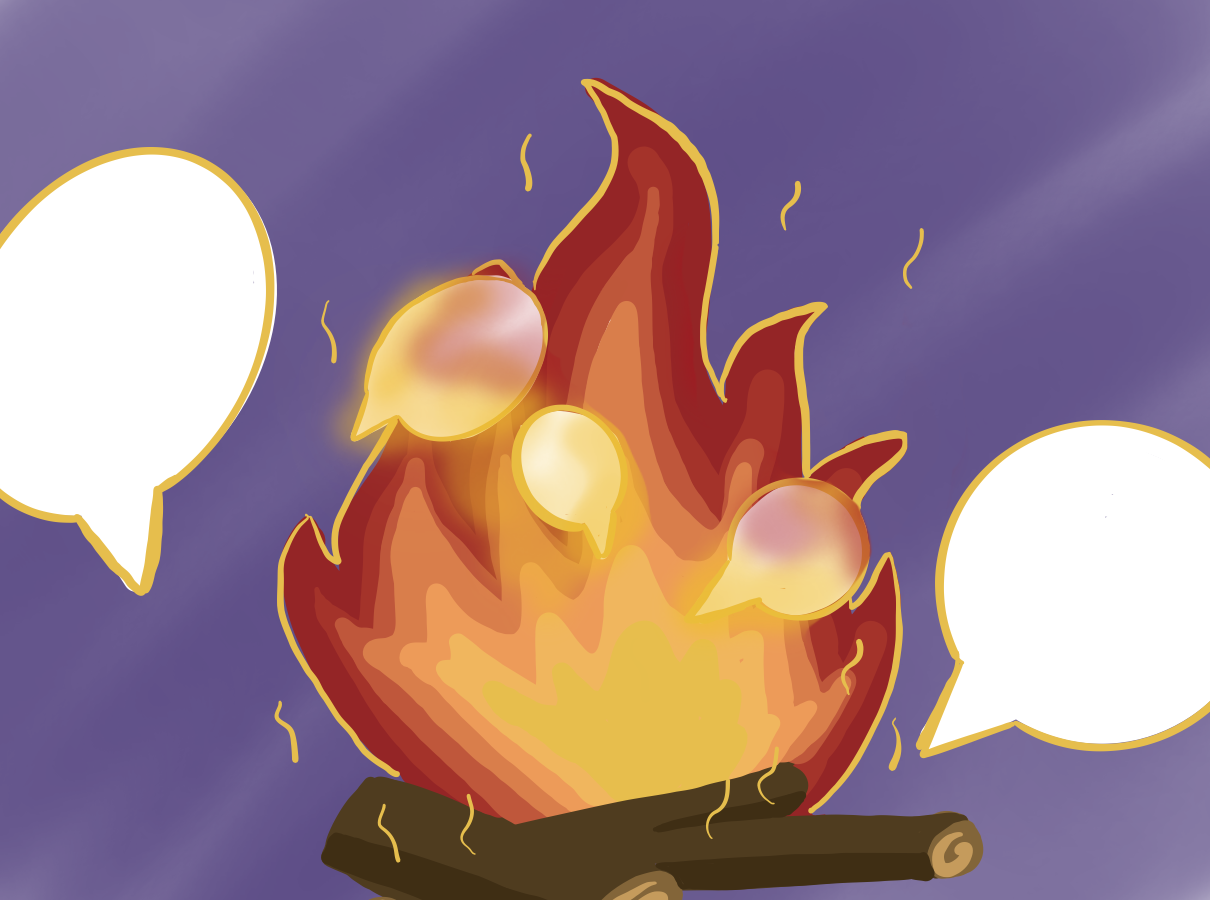
News
Summers Will Not Finish Semester of Teaching as Harvard Investigates Epstein Ties

News
Harvard College Students Report Favoring Divestment from Israel in HUA Survey

News
‘He Should Resign’: Harvard Undergrads Take Hard Line Against Summers Over Epstein Scandal

News
Harvard To Launch New Investigation Into Epstein’s Ties to Summers, Other University Affiliates

News
Harvard Students To Vote on Divestment From Israel in Inaugural HUA Election Survey
How to Make Speech at Harvard the Freest
On the morning of Sept. 9, I woke up hoarse and anxious. The Foundation for Individual Rights and Expression was set to release its annual university free speech rankings, and Harvard was on the cusp of making tragic history. I had spent all night shouting down my peers who had been shouting down a speaker at the JFK Jr. Forum. “The rankings drop tomorrow,” I bellowed in desperation. “You’re torpedoing our chances.”
All that was left was to wait. Would we clinch a Kirkland House-style Straus Cup three-peat — except for the worst speech climate in collegiate America? Or would Harvard rise like a phoenix from the ashes and prove to the world that we are not to be trifled with?
Turns out neither. Thanks to Barnard College and Columbia University quietly deciding to be more or less subsumed into the federal government, we were bumped out of dead last and into the profoundly uninspiring position of 245th out of 257. 13th-worst.
But 13th-worst is not Harvard’s natural place. We flourish at the margins, not the middle. Accordingly, if we can’t be the worst at speech — evidently Columbia/Barnard’s domain — we must strive to be the best. After all, we soared from a pitiful zero free speech points last year to a whopping 49.74 this year, representing the single biggest jump of any school. If we replicate that surge again, Harvard won’t merely improve: we’ll rocket to 1st place.
Here’s how we get there.
First, there are several categories we can game. Our climb out of last place this year largely came from the elite “federal rebuff” bonus, when University President Alan M. Garber ’76 refused to cave to Washington’s demands to derecognize student groups. That single act of backbone was probably worth, in points, dozens of administrative solutions. The lesson is clear: more rebuffs equals more points.
But why wait for crises if we can manufacture them? Garber can hold a press conference exhorting the nation’s pregnant women to max out on Tylenol consumption. He can deploy Harvard University Police Department to Portland to defend the city from Trump’s looming troop surge. He can establish a competing Department of War (Studies) just for the heck of it. Every time he sticks it to the orange man, FIRE’s spreadsheet gets friendlier. With enough creativity, we could turn University Hall into a perpetual-motion machine of principled defiance.
Last year’s glitter debacle illustrates another lever we can pull. An animal-rights protester doused Garber in sparkles, costing Harvard two free speech points and costing the assailant one charge of “assault and battery on a person over 60.” But when the president powered through and finished his speech, FIRE reimbursed us entirely due to Garber’s “constructive response,” where he affirmed both Harvard’s commitment to free speech and that he “could use a little glitter.”
Although the incident was net zero points, that’s merely an arbitrage concern. If we stage disruptions that cost little but rebound big, suddenly protests become profit centers. Consider a confetti cannon in Sanders Theatre or a pie to the face at Morning Prayers. Each stunt might dock a point, but when Garber soldiers on with maximal equanimity, we could net at least two in return.
Then there’s the University of Chicago Statement that FIRE insists we must adopt in order to attain the coveted “green light” Spotlight rating. But Harvard doesn’t adopt the work of other schools. We produce the work that other schools adopt. An easy fix is to draft our own statement, twice as long, three times as unreadable, and slap a Latin motto on the front for good measure. “Veritas Liberat ab Overreachium Gubernationis.” Boom. Green light secured.
Speaker disruptions? Another solvable metric. The more controversial speakers you invite, the more opportunities for chaos. The math is simple: fewer dicey speakers mean fewer disruptions. Why risk Henry Kissinger when we can book a symposium on municipal zoning bylaws?
And if all else fails, hack the survey. FIRE only polled 411 Harvard students this year. But Harvard has thousands of Extension School students, many of whom aren’t even on campus. Stack the survey with them, and suddenly the numbers look rosier: fewer disruptions (they weren’t there), more comfort expressing ideas (they’re writing essays from Northampton), and fewer administrative gripes (hopefully they weren’t expecting much to begin with). Our beloved extension students could finally be put to good use.
Finally, the real drag: penalties for derecognizing pro-Palestinian groups. With Harvard caught between conflicting interests, each suspension and revoked room runs the risk of dinging us yet another precious free speech point. But this too can be remedied with a neat quid pro quo. Harvard doesn’t derecognize the groups if they agree to reformulate their slogans. Instead of “Free Palestine,” the chant becomes “Free Speech” in a classic two birds with one stone maneuver. And FIRE, bless their algorithmic hearts, would have no choice but to catapult us to the podium.
So yes, Harvard faces some challenges. Students self-censor, administrators waffle, and disruptions occur. But culture is hard to fix. Math is not. With rebuffs, rebrands, and recalibration, we can strategize our way to the top. After all, if there’s one thing we excel at, it’s finding artificial solutions to real problems.
Isaac R. Mansell ’26, a Crimson Editorial editor, is a senior studying Economics in Kirkland House.
Want to keep up with breaking news? Subscribe to our email newsletter.

